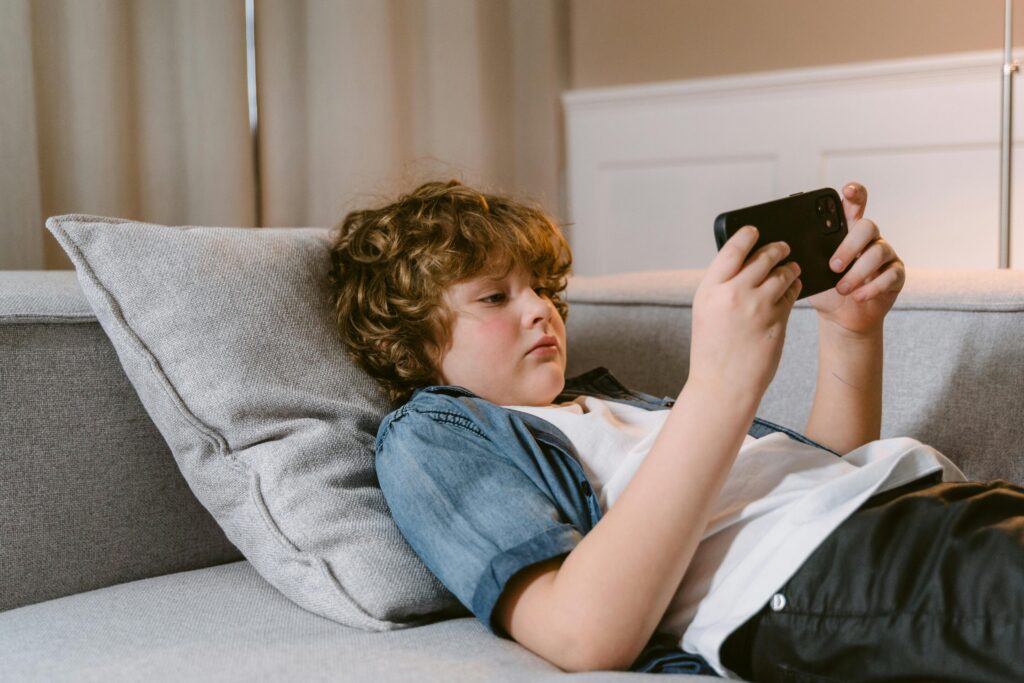Credit: Tima Miroshnichenko (via Pexels)
A new study from the University of California, Irvine School of Medicine looking at the digital skill levels of 10- and 11-year-olds found that children who have a safe and positive understanding of technology and smart devices are more satisfied overall than their less digitally savvy peers.
The findings, published in the new report, Children’s Digital Skills: Safe and Positive Use of Digital Technologies in Ireland and Italy, detail how children can be taught digital literacy to enable them to make the most of the many opportunities the online world has to offer and manage the harms and risks they may encounter.
Nearly 700 pre-adolescents in Ireland and Italy participated in the study, which was conducted in partnership with Cyber Safe Kids, an Irish children’s online safety charity that provides expert guidance to primary and secondary schools to help children, teachers and parents navigate safe and responsible digital experiences.
Overall, children surveyed wanted to see more use of educational apps in school programs, parents to be more proactive in monitoring their children’s digital use, and greater control and regulation of online content.
When it comes to supervising children’s access to and use of smart devices at home, the report notes that parents use a combination of proactive strategies, such as talking to their children about how to use digital technology, and restrictive strategies, such as limiting their interactions with others, sharing content on social media, and exposure to age-inappropriate content.
Interestingly, children perceive themselves as slightly less restrictive than their parents do.
The data presented in the report was collected from schools and homes in spring 2022, after the last wave of COVID-19 had passed.
Other findings include higher levels of digital skills and knowledge in the Irish sample of children, parents and teachers than in the Italian sample, with Irish participants reporting greater access to digital technology for their children and more frequent online activity in general, which is associated with higher levels of digital skills.
The study also found that Irish homes are more digitally equipped than Italian homes, with children more likely to have access to a tablet rather than a smartphone, and tablets being the most frequently used device in both Ireland and Italy.
The report’s lead author is UCD PhD student Mattia Messena, who collaborated with Professor Valerie O’Brien and Dr Marina Eveli, from UCD’s School of Medicine, and Alex Cooney, CEO of Cyber Safe Kids.
“We wanted to focus on preadolescents in this study because they are so underrepresented in research, which generally tends to focus on the negative uses of technology, such as technology addictiveness or the negative experiences kids have online,” said Dr. Eveli, an assistant professor of systemic psychotherapy.
Philip Arneil, head of education and innovation at Cyber Safe Kids, added: “Despite the prevalent risks the online world can pose to children, we welcome the publication of this study which provides much-needed insight into how children can engage with technology in a safer and more positive way.”
“The findings are very much in line with our own view that technology use is not inherently bad for children, but that children, especially at a young age, must be well equipped to use it and have support from their parents, guardians and educators.”
“Teaching children how to become digitally literate is essential to enable them to make the most of the many opportunities the online world has to offer and, where appropriate, to gain support from trusted adults, to manage the harms and risks they may encounter.”
Further information: Children’s digital skills. Safe and positive use of digital technologies in Ireland and Italy Mattia Messena et al., “Children’s digital skills. Safe and positive use of digital technologies in Ireland and Italy.” Zenodo (2024). DOI: 10.5281/zenodo.10696547
Provided by: University College Dublin
Source: Children’s safe use of technology leads to improved well-being (July 30, 2024) Retrieved July 30, 2024 from https://phys.org/news/2024-07-children-safer-technology-linked.html
This document is subject to copyright. It may not be reproduced without written permission, except for fair dealing for the purposes of personal study or research. The content is provided for informational purposes only.

